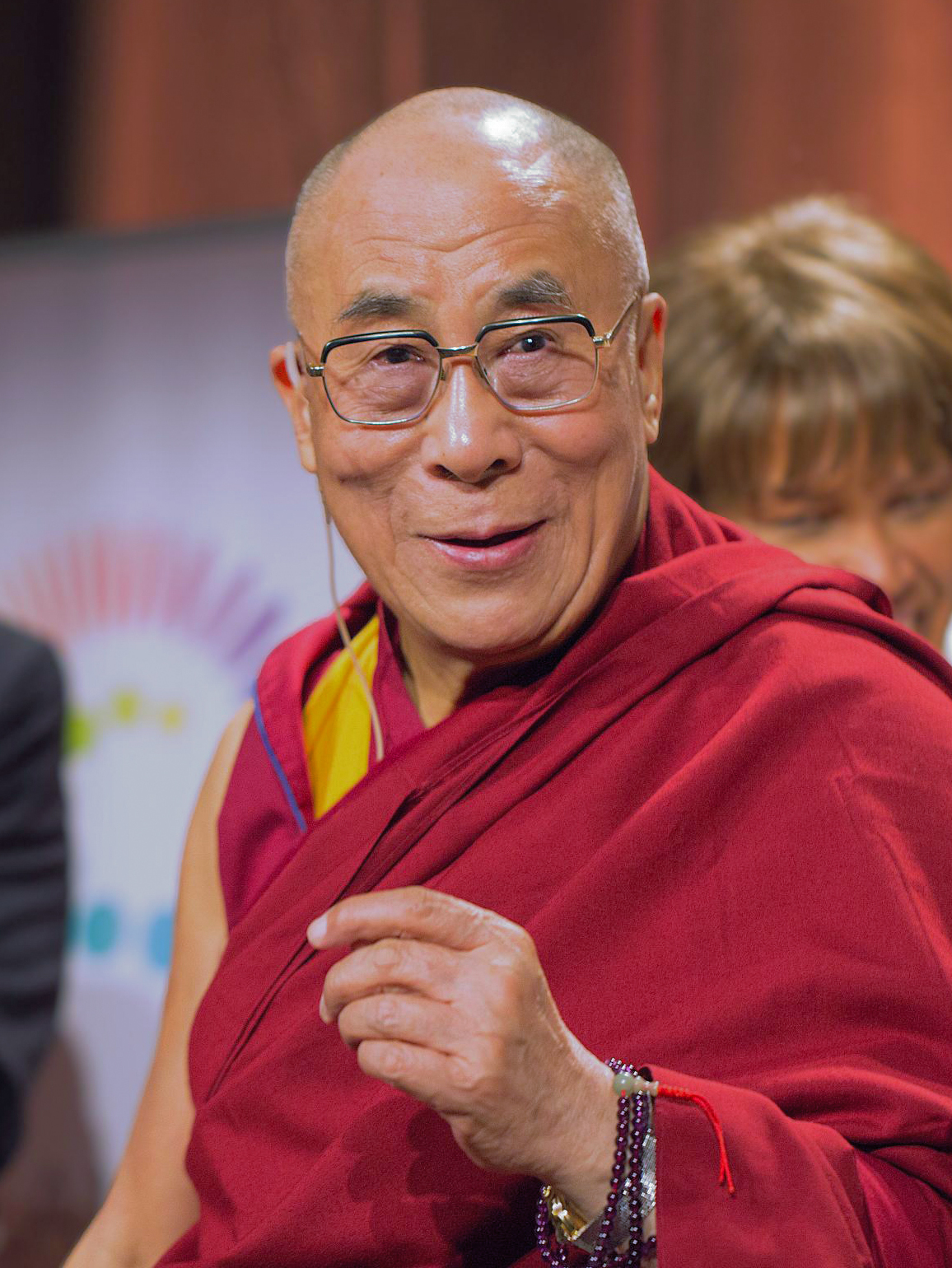Frases célebres de Dalai Lama
Frases de fe de Dalai Lama
Fuente: Palomo Triguero, Eduardo. Cita-logía. Editorial Punto Rojo Libros, 2013; p. 133. https://books.google.es/books?id=He9BAwAAQBAJ&pg=PA133&dq=cita-logia+dalai+lama&hl=es&sa=X&ved=0ahUKEwj24dD8wd7hAhUDKBoKHXL9DvwQ6AEIKTAA#v=onepage&q=dalai%20&f=false ISBN 9781629346847.
Fuente: Citado en Meditations for Living In Balance: Daily Solutions for People Who Do Too Much (2000), de Anne Wilson Schaef; p. 11.
Dalai Lama Frases y Citas
“La existencia es una realidad para vivir, más que un problema para resolver.”
Respuesta de Gyatso a la pregunta '¿Su exilio es una tragedia?'. La respuesta completa: «La existencia es una realidad para vivir, más que un problema para resolver. A lo mejor, si me quedaba en el Tibet, me habría corrompido. De todos modos es bueno que esté fuera, porque así no corro riesgo alguno». (op.cit. p. 194)
Fuente: Wolpin, Samuel. Los Maestros del Sendero. Ed. Kier. Entrevista con el Dalai Lama: p. 194. https://books.google.es/books?hl=es&id=eTKQ5mrVbYkC&dq=La+existencia+es+una+realidad+para+vivir%2C+m%C3%A1s+que+un+problema+para+resolver.+dalai+lama&q=dalai#v=snippet&q=dalai&f=false ISBN 9789501710267.
sin fuentes
“Comprender el vacío no es nada fácil.”
Fuente: Dalai Lama: El arte de la compasión.
Fuente: [‘Dalai Lama’] (2002), p. 99.
Discurso en el Central Park de Nueva York, el 15 de agosto de 1999.
Fuente: Dalai Lama: El arte de la compasión.
Fuente: [‘Dalai Lama’] (2002), p. 13.
Dalai Lama: Frases en inglés
“Dr. Rajendra Prasad was a true Bodhisatva. His humility brought tears to my eyes.”
Freedom in Exile: The Autobiography of the Dalai Lama (1991).
News conference in Vancouver, B.C. as quoted in The Globe and Mail. (8 September 2006).
"I am a simple Buddhist monk: Dalai Lama" in The Times of India (6 July 2006) http://timesofindia.indiatimes.com/articleshow/1711921.cms.
"Kindness and Compassion" p. 47.
The Dalai Lama: A Policy of Kindness (1990)
“I am a simple Buddhist monk — no more, no less.”
As quoted in Nobel Prize Winners (1991) by Lisa F. Dewitt.
Consciousness at the Crossroads: Conversations with The Dalai Lama on Brain Science and Buddhism (1999) ISBN 1559391278
“Love and compassion are necessities, not luxuries. Without them humanity cannot survive.”
As quoted in A Small Drop of Ink: A Collection of Inspirational and Moving Quotations of the Ages (2003) by Linda Pendleton.
Nobel lecture (1989)
As quoted in Especially for Christians: Powerful Thought-provoking Words from the Past (2005) by Mark Alton Rose, p. 19
Nobel lecture (1989)
As quoted in "Tibet's Living Buddha" by Pico Iyer, p. 32.
The Dalai Lama: A Policy of Kindness (1990)
“If a woman reveals herself as more useful the lama could very well be reincarnated in this form.”
News conference in Italy, as quoted in "Dalai Lama says successor could be a woman" in Telegraph (07 Dec 2007) http://www.telegraph.co.uk/news/worldnews/1571850/Dalai-Lama-says-successor-could-be-a-woman.html
"A Talk to Western Buddhists" p. 87.
The Dalai Lama: A Policy of Kindness (1990)
As quoted in Words Of Wisdom: Selected Quotes by His Holiness the Dalai Lama (2001) edited by Margaret Gee, p. 49.
“My true religion is Kindness.”
Kindness, Clarity, and Insight (1984)
As quoted in Tibet, a Guide to the Land of Fascination (1988) by Trilok Chandra Majupuria and Indra Majupuria.
Variante: My religion is very simple. My religion is kindness.
“If you want others to be happy, practice compassion. If you want to be happy, practice compassion.”
As quoted in Meditations for Living In Balance: Daily Solutions for People Who Do Too Much (2000) by Anne Wilson Schaef, p. 11.
Interview in Worlds in Harmony: Dialogues on Compassionate Action, Berkeley: Parallax Press, 1992, pp. 20-21.
Nobel lecture (1989)
"A Talk to Western Buddhists" p. 87.
The Dalai Lama: A Policy of Kindness (1990)
“Great wealth can only be obtained through deception and corruption.”
37 Practices of the Bodhisattva, teaching at Bodhgaya https://www.lamayeshe.com/article/thirty-seven-practices-bodhisattva (January 1974).
Dzogchen: The Heart Essence of the Great Perfection, Snow Lion Publications, Ithaca, 2004
“Don't compare me with Jesus. He is a great master, a great master…”
Interview in The New York Times (28 November 1993).
-- David W. Orr, Earth in Mind: On Education, Environment, and the Human Prospect ISBN 1559632941
Misattributed, Successful people
-- Facebook image meme
Misattributed, Successful people
“What surprises you most about mankind?”
God answered:
"That they get bored of being children, are in a rush to grow up, and then long to be children again. That they lose their health to make money and then lose their money to restore their health. That by thinking anxiously about the future, they forget the present, such that they live neither for the present nor the future. That they live as if they will never die, and they die as if they had never lived."
Misattributed, "What surprises you most about humanity?"
Misattributed, "What surprises you most about humanity?"
Compassion and the Individual https://www.dalailama.com/messages/compassion-and-human-values/compassion
A Call for Revolution (2017-2018)
